
Introduction
Creating a comfortable and safe environment for your ducks is essential for their well-being. Whether you have a small backyard or a spacious garden, there are various duck house ideas that can enhance their living conditions. In this article, we will explore some innovative ideas to help you design a fantastic duck house for your backyard.
1. Understanding the Needs of Your Ducks
Prior to building a duck house, it is crucial to understand the specific needs of your ducks. Ducks require shelter from extreme weather, protection from predators, and a cozy space to lay their eggs. Consider these factors while planning your duck house design.

2. Choosing the Right Location
The location of your duck house plays a vital role in their overall comfort and safety. Select an area in your backyard that is away from potential predators and provides sufficient shade during hot summer days. Additionally, ensure the location is easily accessible for cleaning and maintenance purposes.
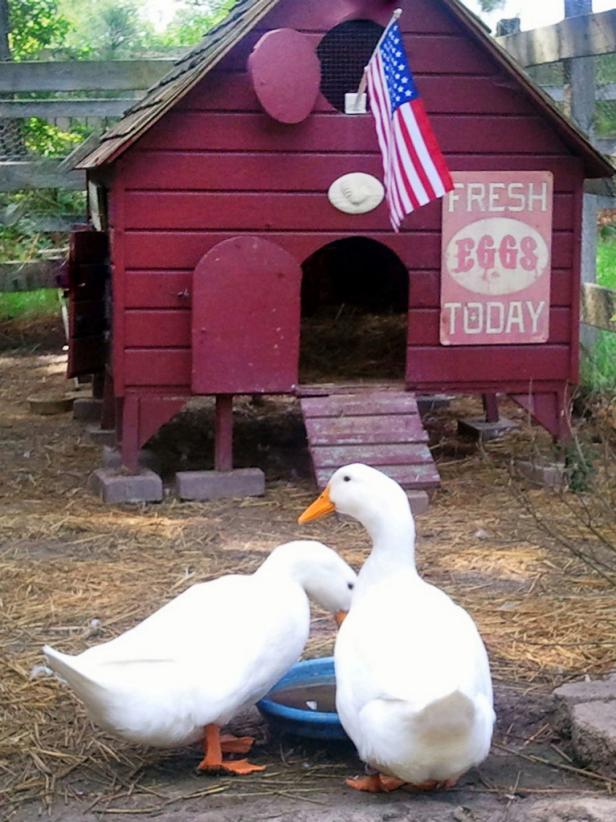
3. Materials for Duck Houses
When it comes to selecting materials for your duck house, opt for sturdy and durable options. Common choices include wood, plastic, or a combination of both. Wood provides insulation and natural aesthetics, while plastic offers easy cleaning and maintenance. Ensure the materials are non-toxic and safe for your ducks.

4. Designing a Spacious Duck House
Providing enough space for your ducks to move around comfortably is essential. Aim for a design that offers sufficient room for walking, swimming, and nesting. A general rule of thumb is to provide at least 4 square feet of space per duck inside the house and a larger area for an outdoor run.
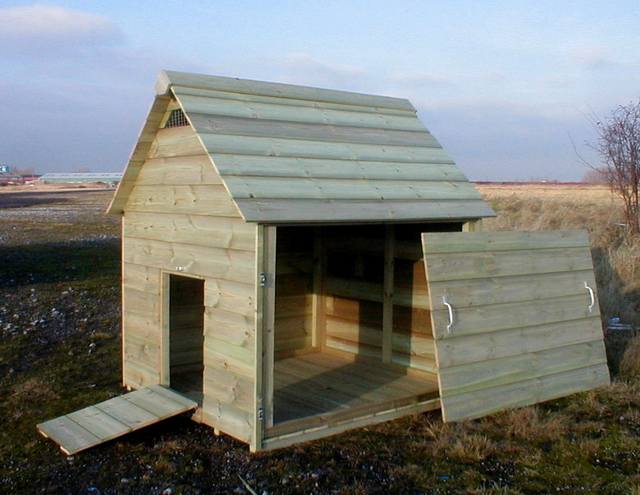
5. Ventilation and Insulation
Proper ventilation is crucial to maintain fresh air inside the duck house. Incorporate windows or vents that can be opened or closed as needed. Additionally, insulating the walls and roof will help regulate the temperature, keeping the ducks warm during winter and cool during summer.
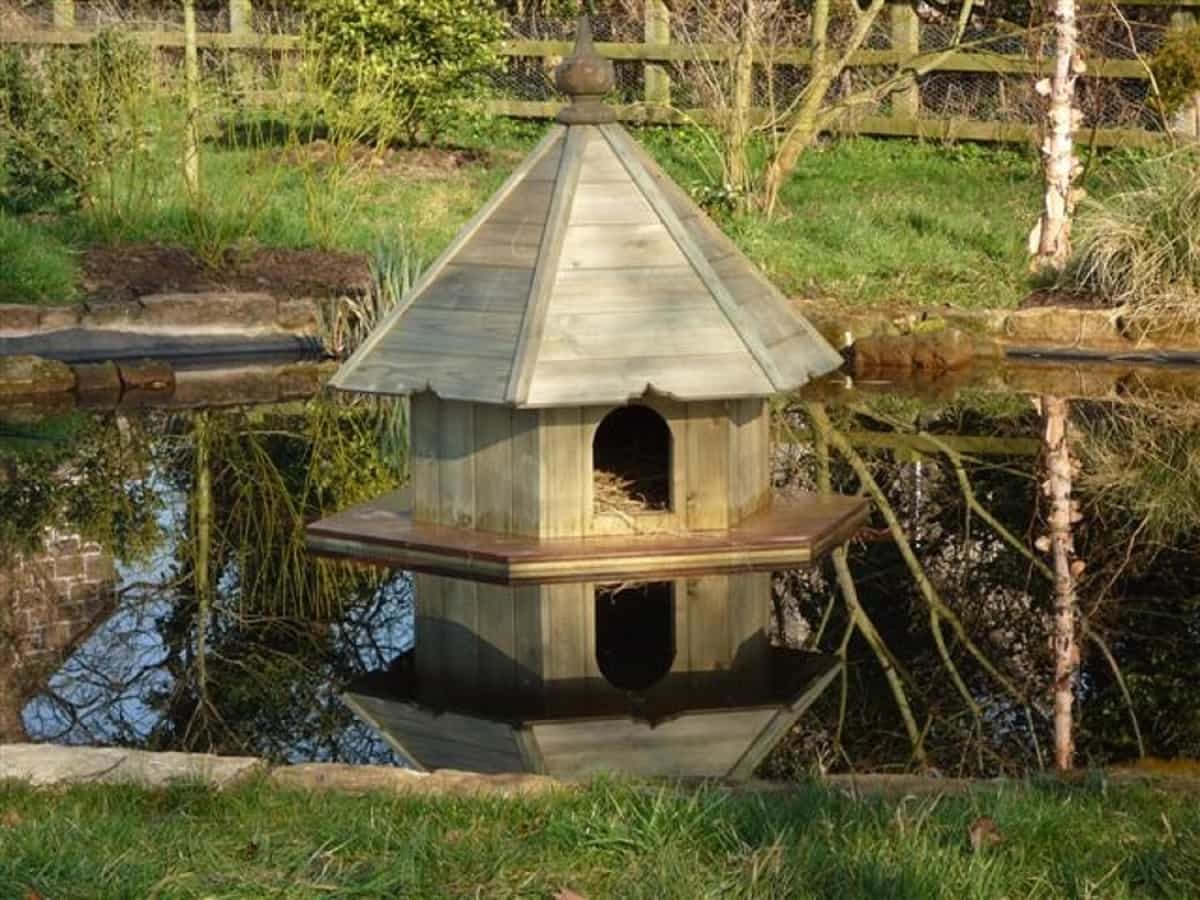
6. Flooring Options
Choosing the right flooring material is essential for easy cleaning and hygiene. Consider using materials like straw, hay, or wood shavings as they are comfortable for ducks and absorb moisture effectively. Regularly clean the floor to maintain a healthy environment for your feathered friends.
7. Nesting Boxes
Providing nesting boxes is crucial, especially if you plan to raise ducks for egg production. Design and install nesting boxes in a secluded area of the duck house, offering privacy and comfort for your ducks to lay their eggs. Ensure the boxes are easily accessible for egg collection.

8. Water Access
Ducks require access to water for swimming, cleaning, and maintaining their feathers. Incorporate a small pond or a shallow pool within the duck house or nearby. Ensure the water is clean and regularly refreshed to prevent the growth of bacteria.
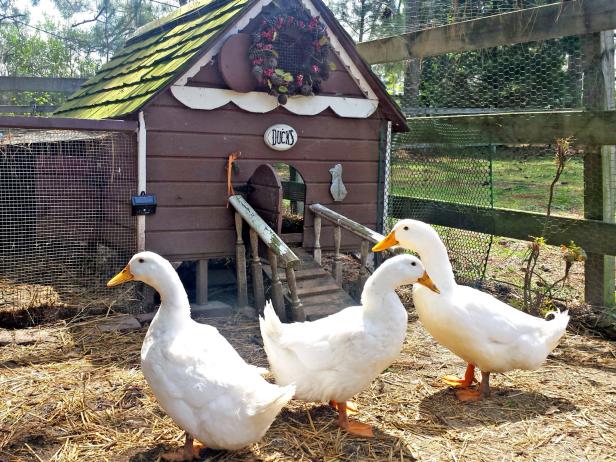
9. Predator Protection
Protecting your ducks from potential predators is vital. Install wire mesh fencing around the duck house to prevent entry from larger predators like raccoons or foxes. Additionally, consider burying the fencing underground to prevent digging by burrowing animals.

10. Natural Landscaping
Integrating natural landscaping elements around the duck house can enhance its aesthetics and provide a sense of security for your ducks. Plant shrubs or bushes that offer shade and cover, creating a natural barrier against predators.

11. Easy Cleaning and Maintenance
Designing your duck house with easy cleaning and maintenance in mind will save you time and effort. Incorporate features like removable floors, easy-access doors, and removable nesting boxes to make cleaning a breeze.
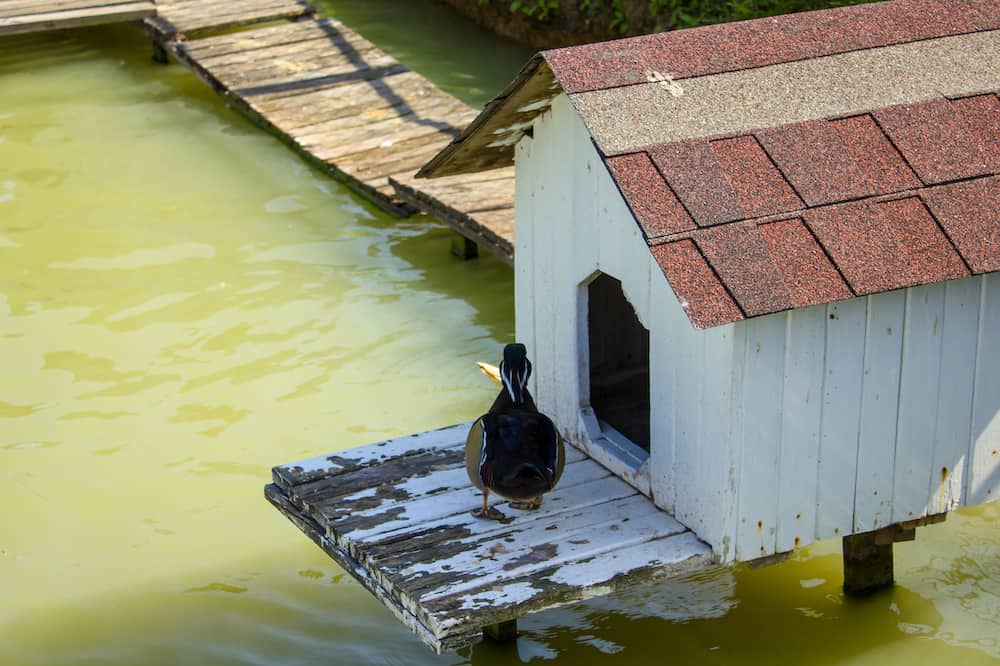
12. Lighting
Proper lighting is crucial for the overall well-being of your ducks. Ducks require natural light to maintain their biological clock. Ensure the duck house has windows or openings that allow natural light to enter during the day.
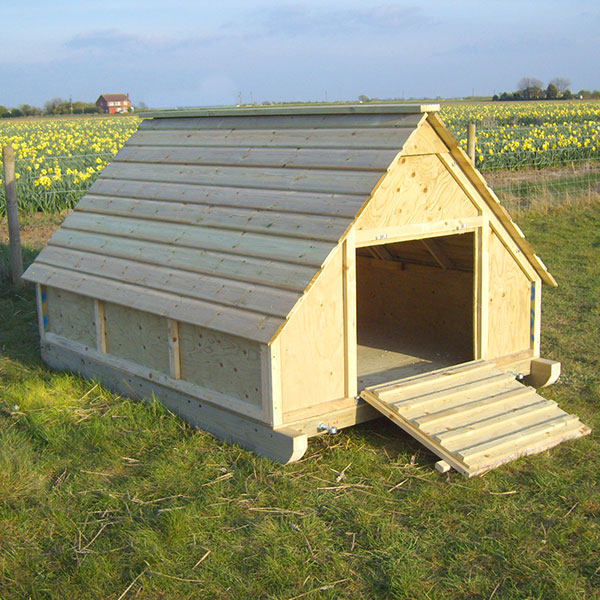
13. Feeding and Watering
Designate a specific area within the duck house for feeding and watering. Install feeders and waterers that are easily accessible to your ducks. Regularly clean and refill them to ensure a steady supply of fresh food and water.

14. Duck House Mobility
If you prefer a mobile duck house, consider building it on wheels or using a portable structure. This allows you to move the duck house around your backyard, providing fresh grazing areas for your ducks.

15. Incorporating Recycled Materials
Reduce your environmental footprint by incorporating recycled materials into your duck house design. Repurpose old crates, barrels, or pallets to create a unique and eco-friendly duck house for your backyard.

16. Noise Reduction
Ducks can be noisy, especially during their mating season. If you live in a residential area, consider incorporating noise reduction features into your duck house design. Use sound-absorbing materials or locate the duck house away from neighboring houses to minimize noise disturbances.

17. Incorporating Play Items
Keep your ducks entertained by incorporating play items within their living space. Install a small ramp or platform for them to climb on, or add a shallow pool with a gentle flow of water for them to enjoy.

18. Weatherproofing
Ensure your duck house is weatherproof to protect your ducks from extreme weather conditions. Use weather-resistant materials, seal any gaps or cracks, and provide adequate insulation to keep your ducks comfortable throughout the year.

19. Incorporating Solar Power
Consider utilizing solar power to provide lighting or heating options within the duck house. Solar panels can help reduce electricity costs and provide an eco-friendly solution for your duck house's energy needs.
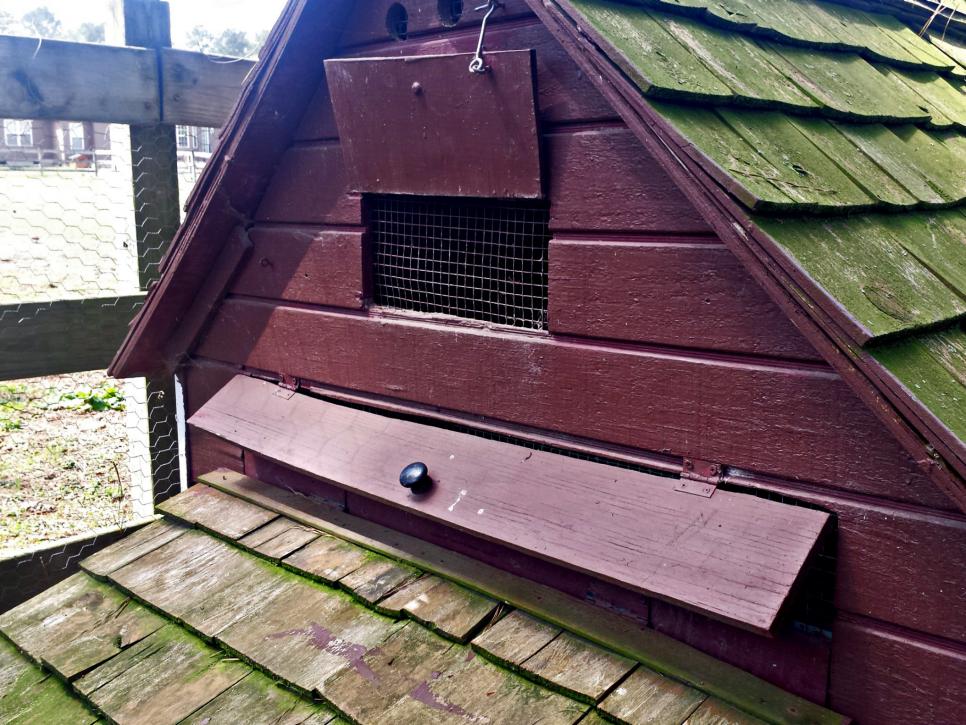
20. Ensuring Safety
Regularly inspect your duck house for any potential hazards or damages. Check for loose wires, sharp edges, or toxic materials that could harm your ducks. Ensuring their safety is key to creating a happy and healthy environment for your feathered companions.
Conclusion
Designing a duck house for your backyard requires careful consideration of your ducks' needs, safety, and comfort. By incorporating these ideas and tips, you can create a fantastic duck house that not only provides a secure shelter but also enhances the overall aesthetics of your backyard. Remember, a well-designed duck house will contribute to the health and happiness of your ducks for years to come!